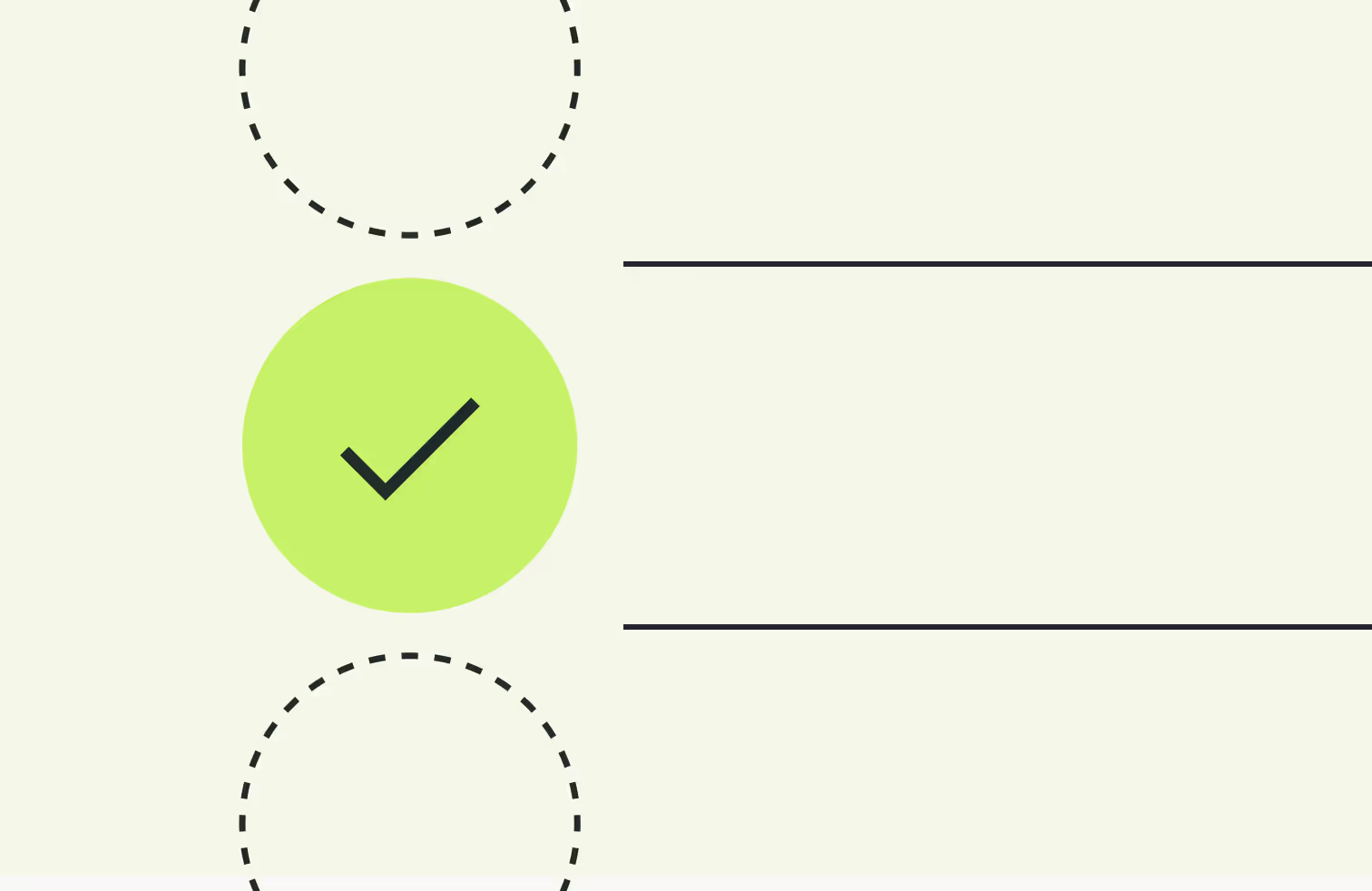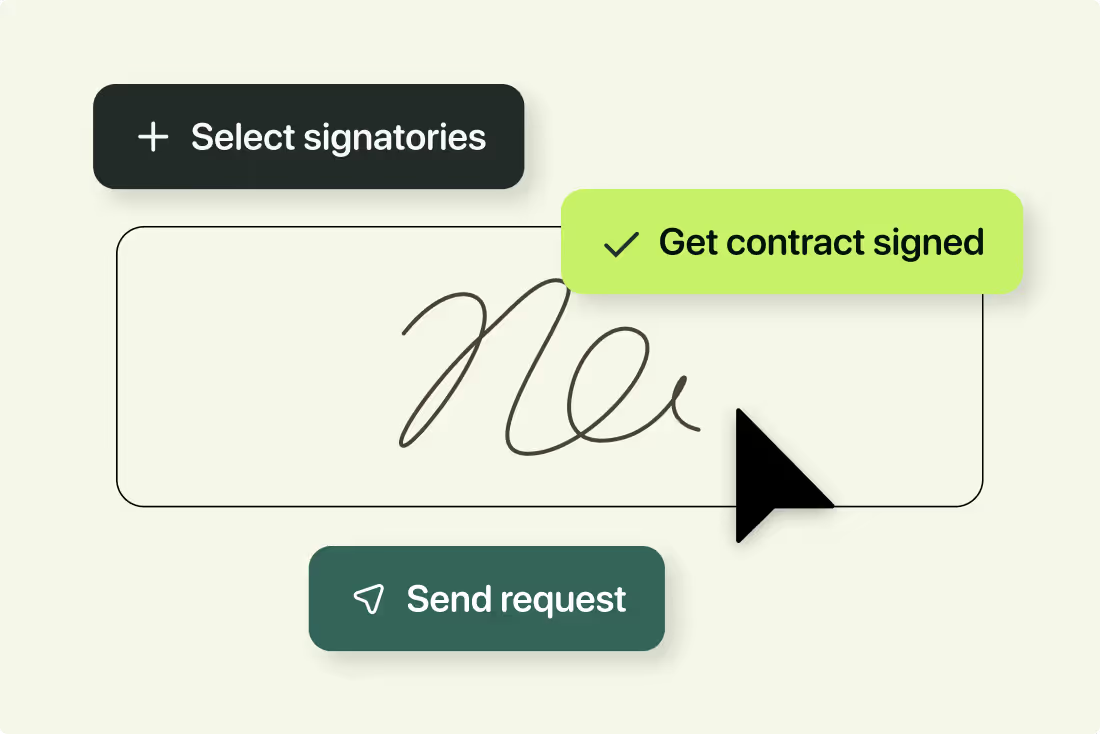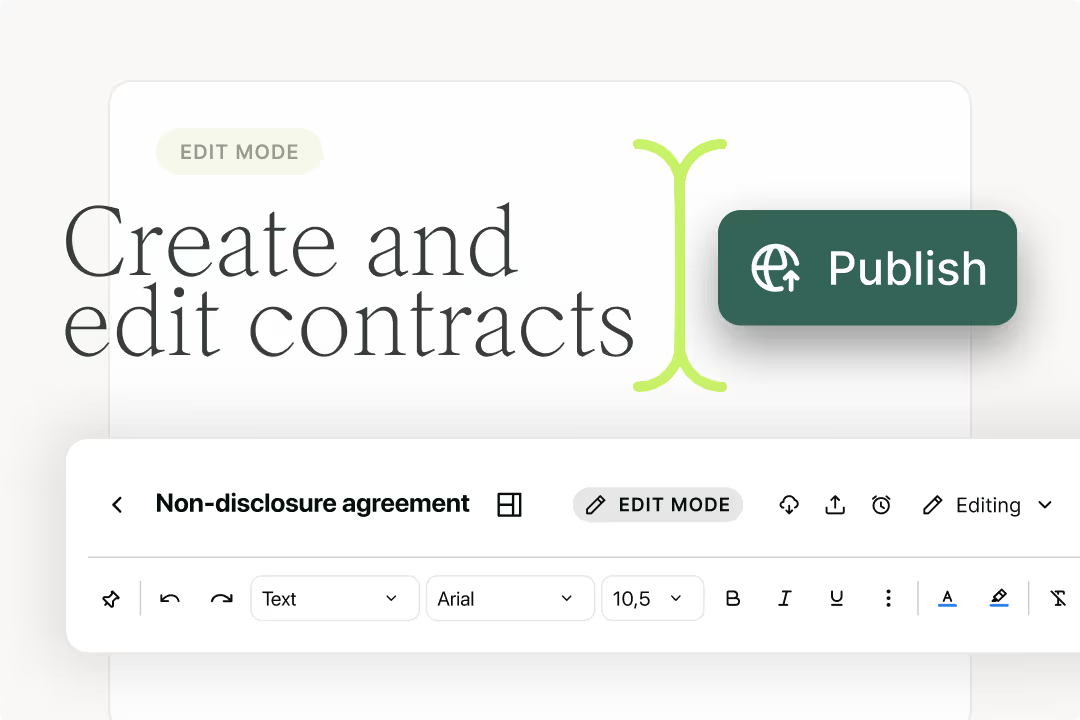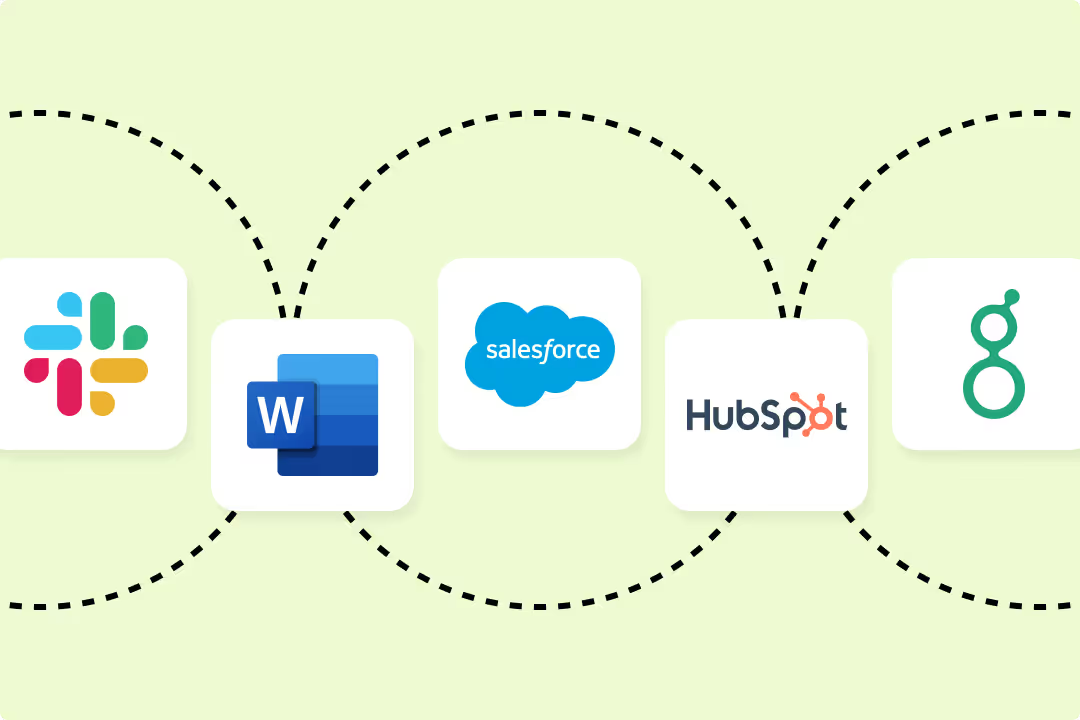Solutions
Customer Support
Resources
The best B2B SaaS solutions are modernizing the way we solve business problems. Yet, many SaaS businesses remain blocked by inefficient contracting processes and routine contract admin.
If this sounds familiar, you've come to the right place. This guide tells you everything you need to know about SaaS contract management in 2026, why it matters, and what you can do to make sure your contracting process more efficient.
SaaS contract management refers to how businesses handle the lifecycle of their software-as-a-service (SaaS) contracts. These contracts govern access to cloud-based software platforms and often come with specific terms around subscription pricing, usage limits, and renewal timelines.
The SaaS contract management experience varies depending on whether you're the vendor or customer.

Each side faces unique challenges, but effective contract management ensures clarity, control, and value for everyone involved. In this guide, we'll focus on how the vendor can achieve this end state.
SaaS contract management matters because how effectively you manage your SaaS contracts can determine how much recurring revenue you secure, and how many customers you keep.
If managed effectively, SaaS contracts can provide predictable revenue for your business. But, if not, you can find yourself with high churn rates, missed renewals, and slow sales cycles.
Here’s how it affects the bottom line:
But before we can understand how businesses can improve their SaaS contract management processes, we first need to understand what SaaS contracts are, and why they’re different from other agreements.

A SaaS contract is a legal agreement between a software provider and a customer that outlines the terms of their relationship.
SaaS contracts set out the rules about the way software is going to be delivered and used. This includes who can access the software, how they can use it, and what they need to pay in exchange for this access.
SaaS contracts also cover other important, more technical matters, such as:
But SaaS contracts are slightly different from other business contracts, so they need to be managed differently as a result.
SaaS contracts are different from other business contracts for a few reasons.
Firstly, SaaS companies don’t deliver physical objects to customers. Instead, customers buy the right to use and access a piece of software. This means that SaaS contracts need to set out detailed rules about how the software can be used and what the specific license entitles the customer to do with it.
Secondly, SaaS contracts use subscription models. Customers subscribe to use the software and are offered certain features and prices based on the subscription they choose.
They pay to access the software over time, and when they end their subscription, they lose access. This means that SaaS contracts govern long-term and ongoing transactions, not just one-off purchases.
But why does this make SaaS contracts particularly difficult to manage?
SaaS contract management can be difficult for businesses due to the nature of the contracts and the scale at which they are created. But that’s not all. There are a few, more specific things that make SaaS contracts more challenging to tackle than others.
SaaS contracts are often created in large volumes. This is because vendors can sell software licenses to lots of businesses at any one time.
Many software vendors have even automated the sales process so that customers can buy and gain access to the solution as quickly as possible. This means SaaS companies can acquire customers without needing to involve their sales team.
It’s a good sign for your customer base to grow quickly. But scaling businesses with lean legal teams can often find it difficult to keep up with SaaS contract management and the manual contract admin involved.

SaaS contract management is also difficult because SaaS contracts tend to involve complex pricing models, such as tiered pricing and usage-based pricing.
Some plans can be customized based on the number of users, for example. But others will be priced based on the features or integrations included. This makes it difficult to standardize your contracts, especially when customers can pick and choose features.
These custom pricing models can also lead to lengthy contract negotiations as they invite customers to seek discounts or extras.
To find out more about how to navigate SaaS contract negotiations, check out these resources:
SaaS companies often rely on contract renewals for their revenue. This is because SaaS contracts follow a subscription-based model.
To manage upcoming contract renewals, legal, sales, and customer success teams need to track contracts and their deadlines closely. While this isn’t a problem for SaaS companies with a handful of customers, it quickly becomes unmanageable for fast-growing companies with lots of customers and contracts.
One option is to set contracts to be renewed automatically. But it’s still important for SaaS businesses to know when these renewals are due so that they can spot any churn risks ahead of time. This can be done by setting up contact renewal reminders using a contract reminder tool like Juro.

B2B SaaS contracts are often full of jargon. This is because they cover complex topics like how the software works, and what standard of service customers can expect from it.
For example, most SaaS contracts will cover how data is collected, stored, and managed by the software provider. This detail is important, but it makes drafting contracts even harder for sales teams with no legal or technical expertise.
Fortunately, there are a few things you can do to transform your contract workflow and make contracting more efficient for your business. Let’s explore some of these SaaS contract management best practices now.
One way that businesses can improve the way they manage their SaaS contracts is to automate the contract creation process.
Most SaaS contracts are created by copying and pasting different templates. But since most SaaS solutions offer custom plans, legal and sales teams usually need to edit each contract template to reflect the specific plan, features, and pricing that a customer has chosen.
If not automated, this data entry and editing can quickly become time-consuming and distract teams from higher-value work.
{{quote1}}
Luckily, SaaS companies can automate their contracts using a contract automation tool like Juro.
Rather than drafting contracts from scratch, Juro users can use automated contract templates to generate SaaS agreements in just a few clicks.
Sales teams simply choose from one of the pre-approved templates stored in Juro. The template is then populated automatically using the data stored in their CRM, or the answers provided during a simple Q&A workflow. This enables teams to create and customize contracts with minimal manual work.

Juro also offers enables users to set rules within their SaaS contract templates. This is done through conditional logic which makes it possible to choose when clauses will be automatically added or removed from the template based on the data in the contract.
For example, legal teams can set rules in the template so that an extra clause is added to the contract if the customer agrees to a case study, or if they are based in a certain jurisdiction.
This means that sales teams can generate contracts in seconds and reduce the time otherwise spent editing the contract.
CRMs often play an important role in the SaaS contract management process. Sales reps use the data stored in CRMs to populate their contracts. They also manually update the records in their CRM to reflect where a contract is in its lifecycle.
But this data entry work quickly becomes time-consuming. The more contracts you create, the more data you need to move between platforms. Before long, lean legal teams are buried in this admin work, with no time to focus on the higher-value tasks they were trained for.
Fortunately, businesses can avoid this routine data entry work by connecting their contract management system with their CRM.
This allows users to set up workflows where data moves seamlessly between the two platforms. Deal data is pushed into a tool like Juro to automatically populate the contract, and the contract’s status can be pushed back into your CRM automatically to keep sales in the loop.

To find out more about how this works and which CRMs offer this functionality, check out these guides:
SaaS contract management doesn’t end when a contract is signed. In fact, post-signature contract management is especially important for SaaS contracts.
SaaS transactions have long-term value and the goal is for customers to renew their subscription when their contract expires. But customers will only do this if you’ve performed the contract and met your contractual obligations.
Yet, most businesses still aren’t tracking their contracts effectively. They have no single source of truth for contracts which makes it difficult, if not impossible, to track their progress and the obligations within them.
There is a solution, though. Lots of fast-growing companies are now using contract management platforms like Juro to store contracts and their data.
SaaS contracts are stored securely in Juro’s contract repository and made fully searchable using OCR functionality. But that’s not all. Juro users can also view all of their contract data at a glance using Juro’s customizable contract dashboards. This allows users to filter hundreds of contracts and gain visibility into the data within them.
{{quote2}}
Contract renewals are an important revenue stream for SaaS companies.
Yet, many businesses still rely on contract management spreadsheets to keep tabs on which contracts are expiring and when.
Spreadsheets are a good start. However, legal, sales, and customer success teams will need to live in the spreadsheet to track of all upcoming deadlines, especially in scaling businesses with lots of customers.
It’s far more efficient to use contract management software or contract reminder software to track upcoming renewals.
Not only do tools like Juro capture and track all of your contract deadlines automatically, but they also send out automated contract reminders ahead of expiration dates. This makes it easy to alert your team ahead of contract milestones.
{{quote3}}
Juro’s all-in-one contract automation software is designed to help scaling companies manage their contracts more efficiently, with more than 6000 companies using Juro to power their contracts.
To find out more about how Juro can transform the way you manage your SaaS contracts, fill in the form below to book a demo.
For SaaS contract templates, check out the ones below:

Lorem ipsum dolor sit amet, consectetur adipiscing elit. Suspendisse varius enim in eros elementum tristique. Duis cursus, mi quis viverra ornare, eros dolor interdum nulla, ut commodo diam libero vitae erat. Aenean faucibus nibh et justo cursus id rutrum lorem imperdiet. Nunc ut sem vitae risus tristique posuere.

